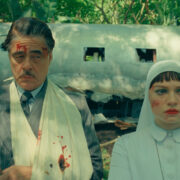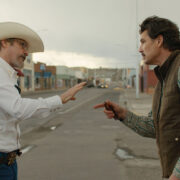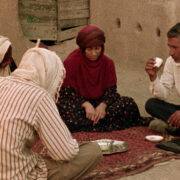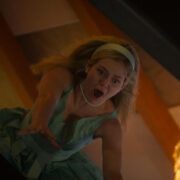A Conversation With Writer/Producer, Willow Polson
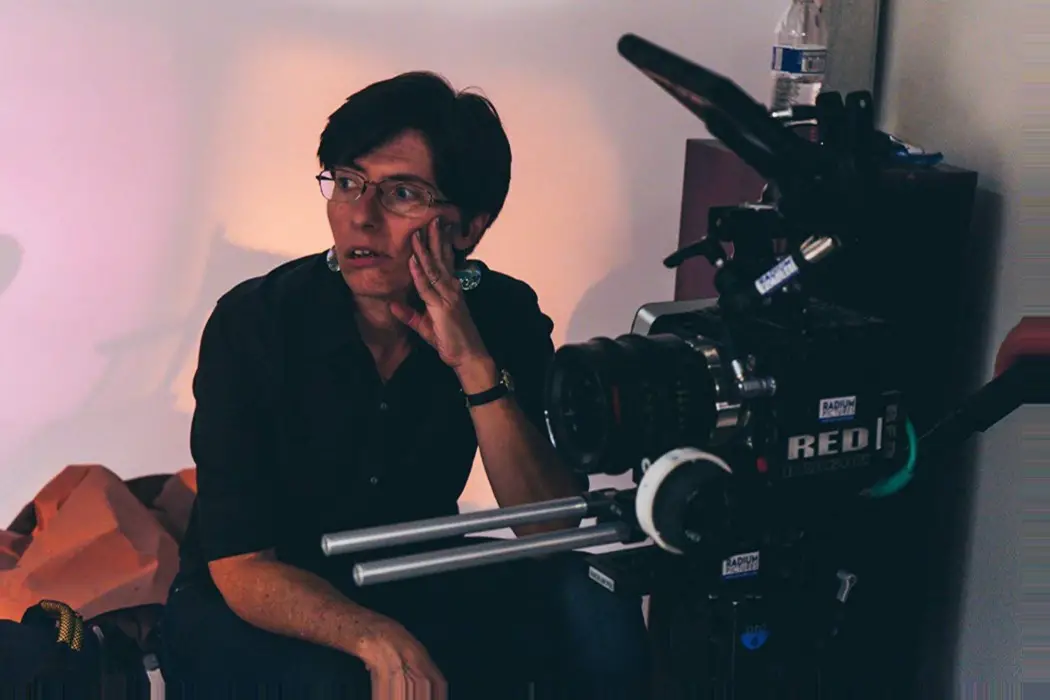
Jacqui Blue has a lifetime background in theater and writing.…
Willow Polson is a writer and producer based in Northern California, known for the series Vintage America with Ginger, and is the Founder of and Executive Producer for Chronokinesis Entertainment. We recently sat down and talked with her about the industry, her place in it and her projects. Here’s what she had to say.
Jacqui Blue for Film Inquiry: Was it always your dream to work in entertainment and how did that come about?
Willow Polson: It wasn’t always my dream to work in entertainment, actually. I did want to be a writer, and did do that for a while, but film and television always felt like “that stuff other people do” and out of the reach of mere mortals like me. Then the show Heroes came along, and at the same time I had been reading “Zen in the Art of Writing” by Ray Bradbury, and it clicked that the types of stories I loved could actually get made. I got to know the show creator, Tim Kring, and we became friends.
He invited me onto set for the first day of shooting on season 2 of his new show, Touch, and there we were sitting next to each other on the beach, watching the filming process, when it hit me. “This is what I want to do for the rest of my life,” I said. “What, sit on the beach?” was his smart-ass reply. After a laugh, I said “No, I want to do this. I want to make television. I want to be a producer.”
Starting your career as a writer, what inspires you and your stories? Have you thought about producing some of your own writings?
Willow Polson: The “what if” is what inspires me creatively. What if your next door neighbor is actually an angel? What if you could fly? What if someone was pulled through a rift in time and met another parallel them? What if someone devised a way to win a war using bats? The possibilities are endless.
I do produce my own writings, because that seems to be the best way to actually get them made. I’ve had people give glowing feedback about my scripts, but I seem to accidentally be in a particular demographic that rarely gets agents, funding, or opportunities in general. This is changing, but there’s nothing like equal treatment in “the business” for women. Agents and managers have consistently ignored me for over a decade.
People in control of funding are mostly white men, and they invest in other white men, who create projects about… you guessed it… white men, despite the overwhelming data that demonstrates that inclusive projects with women and people of color make more money. So that’s been grindingly frustrating on a daily basis as I watch the men around me rise up through the business, and the women around me stay static or even give up entirely.
Obviously there are exceptions, but those are the overall trends I’ve been observing for many, many years. Fortunately we seem to be in the midst of a renaissance, and I’m doing what I can to help it last and grow.
How did your skills and talent with writing lead you to becoming a producer?
Willow Polson: It was actually everything else in my life that led me to becoming a producer, not my writing. At the time I had my magic moment with Tim Kring, I was working as a concierge and events manager at a boutique hotel, where I had to schedule talent and live shows, handle difficult people in many departments, ensure that things were ready to go when the stage lights went on, and eventually create my own events and the “Winter Magic” dinner show series.
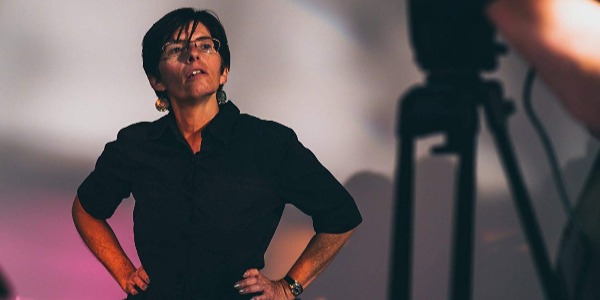
Those skills translated very well right into show production where I found myself doing many of the same tasks, and learning new ones specific to film. I’m like a sponge when it comes to learning things like this.
Which do you feel is more fun; writing or producing and why?
Willow Polson: Producing, absolutely. My favorite thing is to be on set, and I love every aspect of what it takes to make a film happen. Every department is interesting to me, and all the parts of the machine come together to make something incredible that didn’t exist before the director said “action” for the first time. To watch all that hard work come to life is a gift, even if things aren’t quite going as planned.
What projects are you currently working on?
Willow Polson: I’m working on so many things right now, but some of them are back burner while I have no choice to wait for others to get things to me that I’m waiting on. So all that’s a bit of a Tetris game. I’m thrilled to report, however, that my passion project is taking up most of my time right now and I am over the moon about it.
Triune is the story of three brothers who discover that they’re actually angels, but it ends up turning their lives upside down, and they have to figure out how to help people while not losing their own humanity. It’s strongly inspired and influenced by season one of Heroes, I’m very much hoping to recapture that vibe, and that message.
Right now it’s being made as a comic book series on the Pulsar Entertainment digital comics site, and a motion comic with soundtrack is being done, and the really exciting thing is that I’m working on a pitch reel for the live action series. That’s been my dream and my goal for about ten years, and it’s actually starting to happen!
Vintage America with Ginger recently got some much deserved attention, what can you tell us about that?
Willow Polson: Yes! Vintage America with Ginger just won Best Non-Fiction Series at the 9th Annual Indie Series Awards! It was a wonderful experience, and the first time I’d ever been to a black tie gala like that, let alone taking the stage with the team to give an acceptance speech! It was a night I’ll remember a very long time, and hope to have again in the future.
How did you & Ginger Pauley connect?
Willow Polson: Through Heroes, believe it or not. She was Peter and Nathan’s grandmother in the episode “1961.” At the time I was one of the people running the official fan club, and we convinced her to come down to Comic-Con San Diego and visit with the line waiting for the Heroes panel, as well as having a special lunch with some of the other talent. So much good has come out of that show!
What inspired Vintage America with Ginger as a series?
Willow Polson: Ginger Pauley and I have been Facebook friends for a long time, and one day I saw her wistful post, “Why can’t I have a vintage cooking show?” And my first thought was “Why not? Maybe you can…” Because that’s how I think — when I hit a wall and everything seems to be impossible, and I start to think “I can’t because…” I make myself start on a different path of “How can I…?” I find solutions and workarounds and little cracks in walls that others didn’t explore.
What obstacles did/do you face?
Willow Polson: The biggest obstacle for the show is that people love it but don’t know what to do with it. We fall into a crack between the typical network unscripted stuff and scripted shows. We’re upbeat, educational, and fun… and apparently in our own happy little niche. We’ve even had feedback from one company, which shall remain nameless, that said “Can you trash it up a bit?” ….No. No, we cannot.
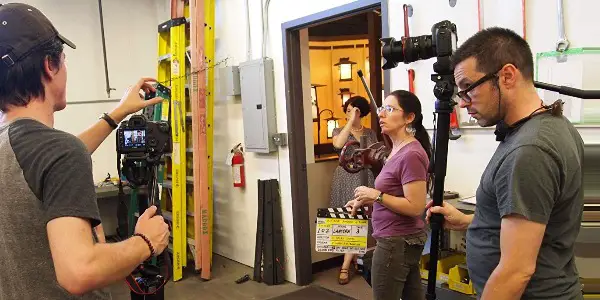
Unfortunately our best fit is probably PBS, but that requires getting quite a lot of money out of a sponsoring company, and that hasn’t come together just yet. We have had a strong nibble, however, so our fingers, toes, eyes, and other body parts are crossed that it comes through so we can make more episodes!
How did you overcome your challenges and get the first season completed?
Willow Polson: We have three completed episodes so far, and they were entirely self-funded.
What has the general reception been to the show from feedback you’ve been given?
Willow Polson: 100% positive. We’ve been amazed by the overwhelming positive response to our little show that could. Everyone is charmed, especially by Ginger’s presence on screen, and they love how informative and upbeat the segments are. They ask for even more information, and discover new brands they didn’t know about before, like Besame Cosmetics which so perfectly embodies our show’s theme: “What it was, and what it is today.”
Where and when can people access it to view it?
Willow Polson: It was up and running on an OTT app called TVtibi, but as of this writing the network is undergoing some retooling and should be back up shortly. We will also be available worldwide on the new Akyumen TV app which is on the Akyumen projector devices which have just started shipping this year.
What have been some of your highlights in your entertainment career?
Willow Polson: Nothing compares to the joy of being on set on a great day of shooting. The highlight of that highlight has been the privilege of sitting with my inspiration, Tim Kring, on set, and in the editing room, and at breakfast, and walking with him on the studio lot as we chatted about our shows. He has given me so much as a friend and mentor and I am forever grateful for his generosity.
How you feel about what’s going on in Hollywood and are you hopeful for change within the industry, why or why not? What do you think needs to happen to make the needed changes in our industry for women and minorities?
Willow Polson: I think we’re in a rare moment. We’ve had moments like this before, but this one may be different, because it comes at a time of civil strife and unrest, and includes all the fights, not just for women and not just for Hollywood. Colin Kaepernick has been incredibly important in this movement for equity and fairness. We cannot ignore one oppression in favor of another, and intersectionality is incredibly important to me.
Several things need to happen to change American culture, and I think two of the most important are persistence and helping everyone around you. Don’t let up. Don’t give up. And do not limit your fight to people who look like you. Seek out opportunities for everyone to succeed. If you’re hiring, look at a larger network and don’t just keep hiring the same people from your inner circle. Give others a hand up. Recommend women and people of color for work. If you’re running a writer’s room, make damn sure you have all kinds of voices and perspectives in that room.
What you’re creating on both sides of the camera is what other people see and are inspired by. When a little girl grows up with Wonder Woman, she knows she can be a hero too. When a little boy sees a Kid Flash that’s black, it expands his understanding of what a hero looks like. Everything you bring into being influences a huge number of other human beings — including people you don’t know, and will likely never meet — and they take into their ears and eyes and senses what you’ve made for them to consume.
Think about the impact your work will have on them. Will it be positive or negative? Who is your message for? Who might your message hurt? Are you only doing this to make a buck? Are you helping to change the world, or keep the status quo? Think about that power you have. The power to influence minds. With great power comes great responsibility. Choose wisely.
Watch the first episode of Vintage America with Ginger:
Does content like this matter to you?
Become a Member and support film journalism. Unlock access to all of Film Inquiry`s great articles. Join a community of like-minded readers who are passionate about cinema - get access to our private members Network, give back to independent filmmakers, and more.
Jacqui Blue has a lifetime background in theater and writing. After achieving international acclaim with her first film Beautiful Births, she was one of 10 Directors selected by James Franco for his Master Class, "Sex Scenes". She went on to work with Jared Padalecki & T.O.N.E-z in her suicide awareness documentary, I Chose Life: Stories of Suicide & Survival and appears on-screen next to Lou Diamond Phillips in The Last Train. www.jacquiblue.net






